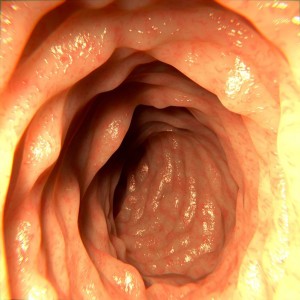Episodes

Monday Sep 04, 2017
Monday Sep 04, 2017
Therapy and prognosis are entailed by the diagnosis: the holistic success of the EBVM approach therefore firmly and critically rests on diagnostic accuracy. Unfortunately, medical professionals do not appear to be very accurate with diagnoses. In human medicine, there is 30-50% discordance reported between doctors’ ante- (presumptive) and post-mortem (definitive) diagnoses, with no significant change in the last 100 years (Goldberg et al 2002). Veterinary surgeons do not perform much better, although it is a chronically under-researched area. This talk looks at how vets and vet nurses can maximise their impact on clinical performance. Read more here.
DM - Diagnostic Accuracy: The Wellspring of EBVM Success, and How We Can Improve It
Veterinary Evidence TodayEdinburgh, 1-3 November 2016

Thursday Aug 24, 2017
Thursday Aug 24, 2017
In this Audio Summary Nieky shares the evidence around whether feeding dogs a raw meat diet reduces periodontal disease. Read the full Knowledge Summary here.
Audio Summaries are a free resource that enables vets and vet nurses to access and digest relevant and up-to-date evidence quicker and easier! A time-saving way to make better and faster evidence-based decisions.

Thursday Aug 10, 2017
Thursday Aug 10, 2017
Acute puerperal metritis (APM) is a potentially life threatening, painful disease and is often treated with third-generation cephalosporins. Due to increasing antibiotic resistance, Alina discusses the need to evaluate alternative therapies to antibiotics. Read more, view the slides and listen to the Q&A here.
AP - Efficacy of Nonsteroidal Antiinflammatory Drugs for the Treatment of Acute Puerperal Metritis in Dairy Cow
Veterinary Evidence TodayEdinburgh, 1-3 November 2016

Thursday Aug 10, 2017
Thursday Aug 10, 2017
Q&A from Alina's talk at the Veterinary Evidence Today conference, Edinburgh November 1st, 2016. Read more, view the slides and listen to the full talk here.

Monday Aug 07, 2017
Monday Aug 07, 2017
In this Audio Summary Adam shares the evidence around whether hydrolysed diets reduce gastro-intestinal symptoms in dogs with chronic enteropathy. Read the full Knowledge Summary here.
Audio Summaries are a free resource that enables vets and vet nurses to access and digest relevant and up-to-date evidence quicker and easier! A time-saving way to make better and faster evidence-based decisions.
Read the transcript.

Friday Jul 21, 2017
Friday Jul 21, 2017
Q&A from Katie's talk at the Veterinary Evidence Today conference, Edinburgh November 2nd, 2016. Read more here.

Friday Jul 21, 2017
Friday Jul 21, 2017
Clinical audit can play an important part in improving the services offered by farm animal veterinary practices. Its current use however is very varied. Understanding experiences, considering concerns and taking into account the thoughts of veterinary surgeons is vital when creating guidance for the profession. Read more here or listen to this session's Q&A.
KW - Clinical Audit Experiences of Veterinary Surgeons Undertaking Farm Animal Work in the UK
Veterinary Evidence TodayEdinburgh, 1-3 November 2016

Wednesday Jul 12, 2017
Wednesday Jul 12, 2017
Q&A from Mary's talk at the Veterinary Evidence Today conference, Edinburgh November 2nd, 2016. Read more here.

Wednesday Jul 12, 2017
Wednesday Jul 12, 2017
In this talk, from the Veterinary Evidence Today conference 2016, Mary Fraser discusses the variety of different medications that can be used in the treatment of Malasseziaotitis externa and the need for a greater number of robust clinical trials. Read more here.
Veterinary Evidence TodayEdinburgh, 1-3 November 2016

Monday Jul 10, 2017
Monday Jul 10, 2017
In this Audio Summary Erik gives an overview of the evidence around when to change fluid bags and IV sets. Read the full Knowledge Summary here.
Audio Summaries are a free resource that enables vets and vet nurses to access and digest relevant and up-to-date evidence quicker and easier! A time-saving way to make better and faster evidence-based decisions.
Read the transcript.



